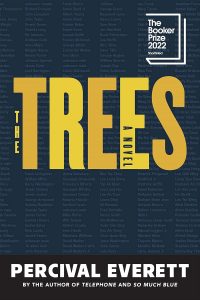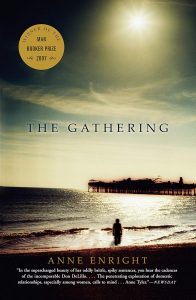Finally, a way to never be disappointed by yet another so-so book: Only read what Percival Everett writes.
A few weeks ago, I gushed over “James,” Everett’s current reimagining of “The Tales of Huckleberry Finn,” this time told from the perspective of Jim, the slave. Seeing my comments in an online book group, someone suggested that “The Trees” was equally terrific.
And it is.

“The Trees” also uses history as a fulcrum, in this case the 1955 murder in Mississippi of 14-year-old Emmett Till, who was tortured, shot and lynched after being falsely accused of flirting with a white woman. Till was one of more than 4,000 Black victims of lynching and other documented acts of racial terrorism that occurred in the United States between the Civil War and World War II. (Read more: https://lynchinginamerica.eji.org/report/).
Set in the present day in Money, Mississippi (where Till was killed), “The Trees” begins as a crime story: A white resident, Junior Junior, turns up dead and emasculated in his home. Near his bloody corpse lies the body of a Black man. Both cadavers are hauled to the morgue, but that of the Black man disappears, only to reappear again in similar circumstances.
When the dead won’t stay dead, it’s a mystery enough for the state police to send a pair of Black detectives to Money, where they find a townful of cartoonish Southern crackers, a 105-year-old great-grandmother who has amassed thousands of files about lynchings, and a passing-for-white diner waitress who is hiding more than her skin color.
Little by little, “The Trees” reveals itself to be less of a crime story and more of an artful, incisive indictment of America’s shameful past and of the shameless persistence of racist values disguised as regional culture.
Everett pulls off this impeachment with a mix of violence, sarcasm, caricature, and humor (the latter especially evident in the book’s wonderful dialogues). To say more is to reveal too much, so I’ll end with this: “The Trees” is inventive, entertaining, and enlightening, a virtuoso work that anyone who loves good books should read.

